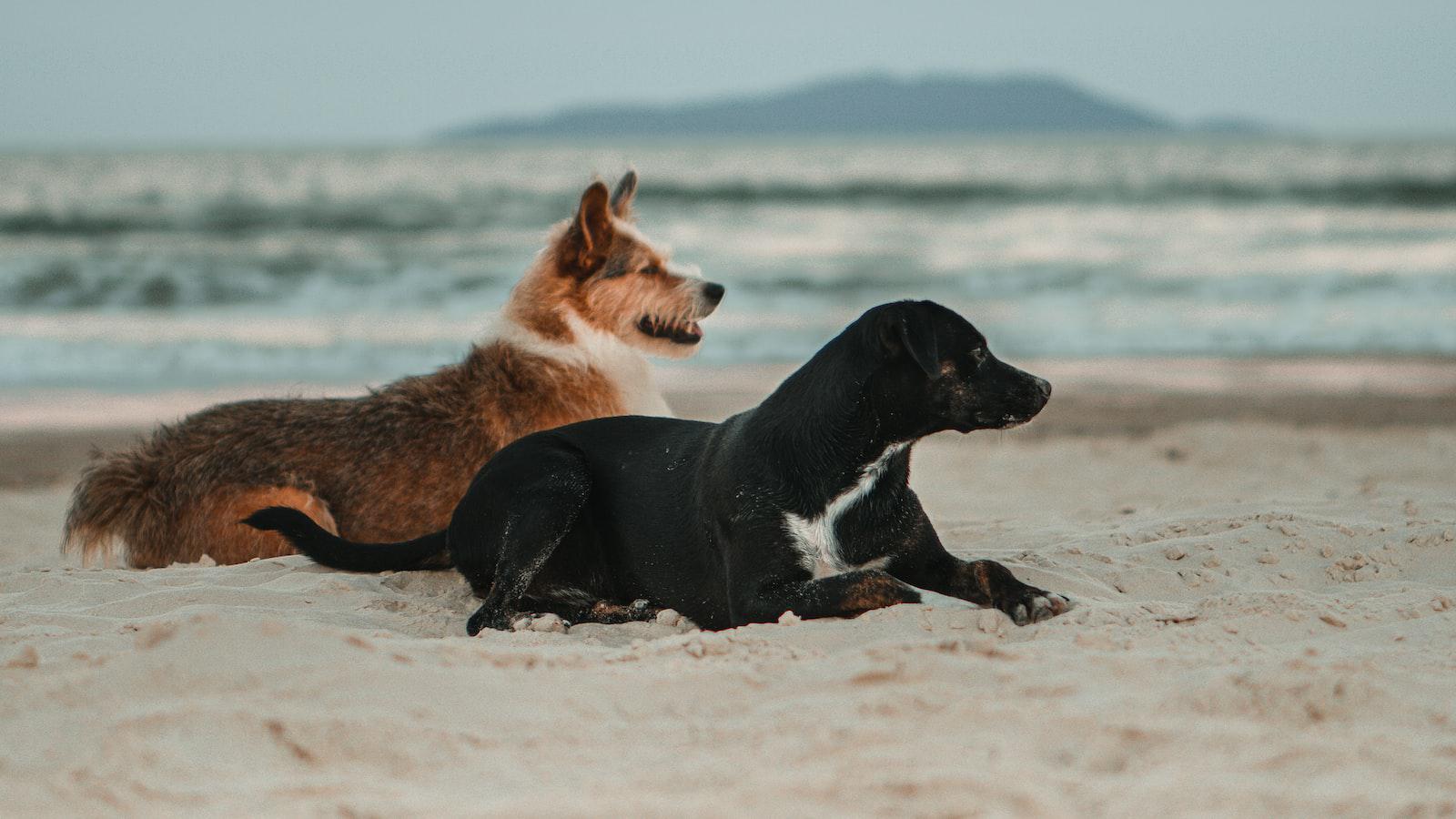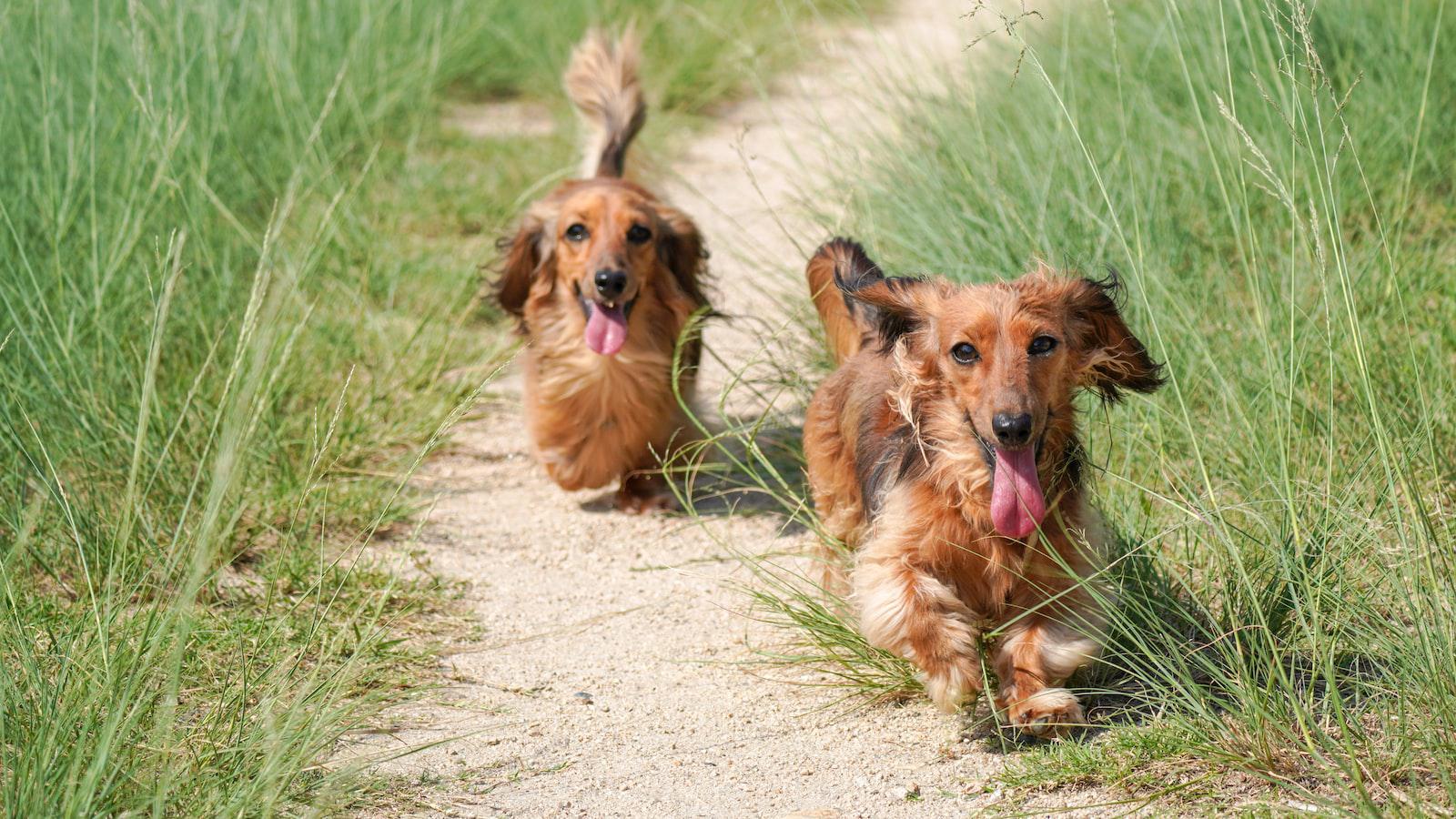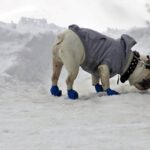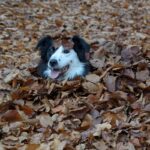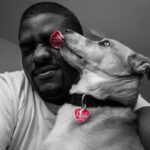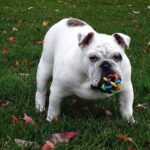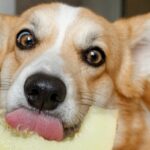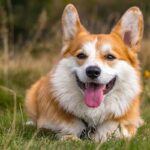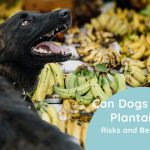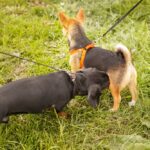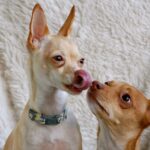Picture this: you’re out on a leisurely stroll with your furry friend, basking in the glorious sunshine, when suddenly, horror strikes.
As you turn your back for a mere second, you catch your beloved dog enthusiastically devouring their own poop.
Yuck! It’s a cringe-worthy sight that makes you question your pet’s sanity, as well as your decision to adopt a canine companion.
But fear not!
We’re here to dive into the intriguing world of poo-eating pooches and shed light on the burning question: why on earth do dogs eat their feces?
Read on to find all the gross answers to this uncomfortable question.
Why Do Dogs Eat Their Poop? The Gross Behavior Explained
Have you ever caught your furry friend munching on his own poop?
It’s a behavior that might leave you scratching your head, wondering what on earth could possess a dog to engage in such a repulsive activity.
But fear not, dog lovers, because there are actually some scientific explanations behind this rather gross habit.
First things first, poop-eating behavior is known as coprophagia, which derives from the Greek words “copros” (meaning feces) and “phagein” (meaning to eat).
While it may seem strange to us humans, this behavior is fairly common among canines, especially puppies.
The Instinctual Origins
Believe it or not, this behavior can be traced back to the ancestral roots of our domesticated dogs.
Puppies, in particular, may indulge in coprophagia as a means of mimicking their mother.
This practice aids in keeping the den or living area clean, as mother dogs would typically ingest the feces of their offspring.
While the reasons behind this behavior may have faded over time, the instinct to clean up remains ingrained in your dog’s DNA.
Additionally, dogs have highly developed senses, particularly their olfactory system.
Their keen sense of smell allows them to detect various scents and analyze them.
Some experts speculate that dogs may consume their feces due to the lingering scent, which they find interesting or enticing.
It’s as if they’re trying to decipher the puzzle left behind, satisfying their curiosity in the process.
Potential Nutritional Deficiencies
In some cases, a dog’s coprophagia may stem from lacking certain nutrients in their regular diet.
Dogs are known to have ancestral ties to wild canines that would consume the entire prey, including organs and feces.
Thus, it’s possible that a dog’s instinctual survival instinct kicks in when they detect undigested nutrients in their fecal matter.
If you suspect this could be the cause, consulting with your veterinarian about adjusting your dog’s diet and introducing additional supplements may help alleviate the issue.
Medical Conditions
Sometimes, coprophagy can be a symptom of an underlying medical condition.
Conditions such as malabsorption issues, pancreatic insufficiency, or parasites can lead to nutritional imbalances, causing dogs to seek alternative sources of nutrients, including their own waste.
If you notice your dog’s poop-eating habit is accompanied by other concerning symptoms like weight loss, diarrhea, or excessive thirst, it’s best to consult with your veterinarian to rule out any underlying health issues.
Environmental Factors and Behavioral Causes:
Lastly, external factors such as stress, boredom, or seeking attention can play a role in a dog’s coprophagia.
Dogs are highly social creatures and may resort to eating their own feces as a means of gaining attention from their owners.
If they receive a strong reaction, even negative, it reinforces the behavior.
Additionally, dogs that spend a significant amount of time alone or lack mental stimulation may engage in coprophagia out of sheer boredom.
Potential Health Risks When Dogs Consuming Their Waste
While it is certainly a gross habit to witness, the act of dogs consuming their waste does come with potential health risks.
Here are a few dangers associated with this behavior that every dog owner should be aware of:
Intestinal parasites: Dogs who eat their poop are at a greater risk of ingesting intestinal parasites such as roundworms or hookworms.
These parasites can cause various health issues, including diarrhea, weight loss, and even anemia.
Spread of bacteria and viral infections: Dogs’ waste is full of bacteria and viruses that can be harmful to their health.
By consuming their waste, dogs are exposing themselves to potential infections and gastrointestinal upsets.
Nutritional deficiencies: Contrary to popular belief, eating poop does not provide dogs with the essential nutrients they need.
In fact, it may interfere with their regular diet and lead to imbalances in their nutritional intake.
Understanding the underlying factors behind coprophagia can help us approach these behaviors with patience and empathy.
As responsible dog owners, it is crucial to discourage this behavior and ensure that our furry friends have a balanced and healthy diet.
How to Stop Your Dog from Eating Its Own Feces
Firstly, it’s essential to provide our furry companions with a balanced and nutritious diet to ensure they are getting all the essential nutrients.
If your dog’s diet lacks certain nutrients, they may seek out those missing elements in their feces.
Consult a veterinarian to determine if any dietary changes or supplements are needed.
Furthermore,
Expert Tips for Preventing Coprophagy Behavior
Now that we have explored some of the reasons behind why dogs eat their own feces, it’s crucial to address how we can put an end to this behavior.
Fortunately, there are several expert tips that can help discourage this behavior and ensure your furry friend stays healthy and happy.
Remember, prevention is key, so let’s dive into some effective strategies!
1. Keep the environment clean: Ensure that your dog’s living area is tidy and sanitized regularly.
Remove any feces promptly to eliminate the temptation for your pup to indulge.
This will also help maintain good hygiene and minimize the spread of harmful bacteria.
2. Optimize their diet: Ensure your dog is receiving a balanced and nutritious diet to minimize any nutritional deficiencies that might lead to coprophagy.
Speak to your veterinarian to ensure that your pup’s food contains all the necessary vitamins and minerals.
Additionally, try adding natural supplements such as digestive enzymes or probiotics to improve your dog’s gut health.
3. Provide enrichment: Providing an enriching environment for your dog can help curb their boredom and deter them from engaging in coprophagia.
Regular exercise, playtime, and mental stimulation through training or puzzle toys are excellent ways to keep your dog’s mind and body engaged.
Additionally, ensuring your dog has access to fresh water at all times is important, as dehydration can also contribute to the behavior.
4. Positive reinforcement: Training your dog using positive reinforcement techniques can truly work wonders in preventing coprophagy.
Reward your furry pal with treats, praise, or playtime when they avoid eating feces or display other desired behaviors.
Conversely, avoid punishing or scolding your dog when catching them in the act, as it may escalate their anxiety or confusion.
In conclusion, while the act of dogs eating their own feces may seem revolting to us, it’s essential to understand that there are underlying reasons behind this behavior.
Whether it’s their innate instinct to keep their living spaces clean or a manifestation of boredom, addressing the root causes is the key to preventing coprophagia.
By providing a nutritious diet, a stimulating environment, and the necessary vet care, we can help our beloved canine companions break free from this puzzling habit.
FAQ
Q: Why on earth would a dog want to eat something so gross as poop?
A: Great question!
Though it may seem revolting to us, dogs may have their reasons.
There are a few theories floating around. One idea is rooted in their ancestral history as scavengers.
Back in the day, wild dogs often had to rely on whatever food was available, including feces, to survive.
Q: Doesn’t this mean there’s something wrong with my dog’s diet?
A: Not necessarily.
While poor diet or nutrient deficiencies could be a factor, dogs who consume healthy, well-balanced meals can also exhibit this behavior.
So it’s not always an indicator that you’re doing something wrong as a pet parent.
Q: Could it be a sign of some health issue then?
A: It’s possible.
Certain medical conditions, like malabsorption problems or enzyme deficiencies, can affect a dog’s digestion and cause their stool to retain residual nutrients.
This can make it tempting for them to have another go at their own feces. Yuck!
Q: How can I stop my dog from munching on their poop?
A: There are several strategies you can try.
First, ensure that your pup’s diet meets all their nutritional needs.
Feeding them a high-quality dog food with sufficient nutrients can help reduce the appeal of their feces.
Another approach is to train your dog to “leave it” or “drop it” commands so they understand it’s not an acceptable snack.
Q: Are there any products specifically designed for this issue?
A: Indeed!
There are products available, like additives or supplements, that can be added to your dog’s food to make their poop less appealing to their taste buds.
These products contain enzymes that break down the smell and taste of their feces.
Always check with your veterinarian before trying any of these options.
Q: Can eating poop be harmful to my dog’s health?
A: While it may disgust us, dogs consuming their own feces generally won’t result in any immediate health hazards.
However, it’s important to keep an eye out for potential issues.
If your dog regularly eats feces, they may be exposed to harmful bacteria or parasites, which could cause stomach upsets or infections.
So, prevention is definitely better than cure!
Q: Is it a behavioral problem or just a weird habit?
A: It can be both.
Some dogs may develop coprophagia, which is the fancy term for poop-eating, as a behavioral habit.
It could be triggered by boredom, stress, anxiety, or even a way to seek attention.
If you suspect it’s a behavioral issue, consulting with a professional dog trainer or veterinarian can help you address the underlying causes.
Q: Can puppies outgrow this behavior naturally?
A: Luckily, many puppies do outgrow this habit as they mature.
As they get older and their diets stabilize, they often lose interest in feces.
However, it’s not a guarantee for all dogs. So, it’s best to be proactive in managing the behavior if it persists.
Q: Any final words of wisdom for pet parents dealing with this issue?
A: Definitely!
Try not to stress too much if your dog has a hankering for their own number twos.
Remember, it’s a common behavior and doesn’t always signify an underlying health problem.
Stay vigilant, keep them on a healthy diet, and seek guidance from professionals if needed.
And most importantly, don’t forget to love and appreciate your furry friend for all their other wonderful qualities!
Concluding Reflections Dogs Eat Their Feces
And there you have it, the curious case of why dogs can sometimes be seen chowing down on their own poop.
It may seem absolutely baffling to us, but remember, our furry friends have their own reasons for engaging in this rather unsavory behavior.
From their evolutionary roots as scavengers to instinctual behaviors passed down through generations, dogs have developed some peculiar habits.
While their poop-eating antics may leave us a little grossed out, it’s important to understand that it doesn’t necessarily mean they have an underlying health issue or nutritional deficiency.
So be patient with your furry companion if you catch them in the act.
After all, dogs have their own reasons for doing things that might not make sense to us humans.
Remember to always provide a balanced and nutritious diet, plenty of exercise, and engage them in mentally stimulating activities to keep them happy and content.


